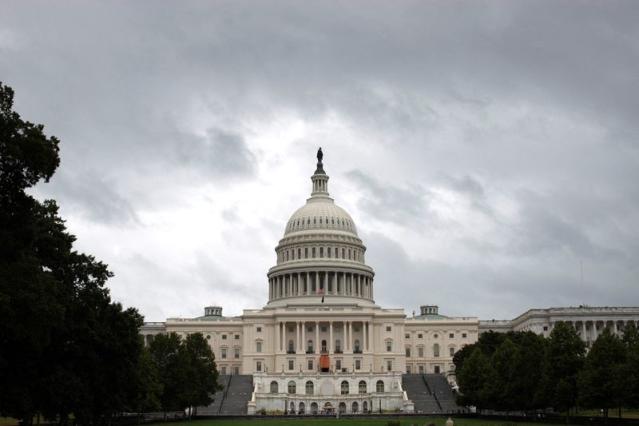
What would the implications be if a sitting president faced impeachment?
🚨Get your crypto exchange secret bonus right now.🚨
Setting the Stage for Impeachment
Impeachment serves as a critical mechanism within U.S. governance, primarily designed to hold high officeholders accountable for misconduct. Currently, the notion of impeachment has gained significant traction among House Republicans, who assert that President Joe Biden has committed various impeachable offenses. This assertion is emblematic of escalating political tensions that have characterized the current administration.
The continuing discord between Republican lawmakers and the Biden administration reflects broader ideological divides that have emerged in U.S. politics. With the backdrop of heightened partisan conflict, the implications of impeachment discussions are far-reaching, affecting the political landscape and public perception.
Understanding Impeachment
The Constitutional Framework
Impeachment is distinctly outlined in the U.S. Constitution. Article II, Section 4 states that “The President, Vice President, and all civil Officers of the United States, shall be removed from Office on Impeachment for, and Conviction of, Treason, Bribery, or other high Crimes and Misdemeanors.” This clause establishes the fundamental basis for initiating impeachment proceedings but leaves the definition of “high Crimes and Misdemeanors” somewhat ambiguous.
Understanding this constitutional framework is vital for interpreting the ongoing situation. Impeachment is not just about legal violations; it also includes political implications that can shape the executive branch’s ability to govern effectively.
The Process of Impeachment
The impeachment process entails several steps, primarily initiated in the House of Representatives. Below is an overview of the procedural components involved in impeachment:
| Step | Description |
|---|---|
| 1. Investigation | Congressional committees investigate allegations against the president. |
| 2. Articles of Impeachment | If sufficient evidence is found, articles of impeachment are drafted and voted on. |
| 3. House Vote | A simple majority is required to approve articles of impeachment. |
| 4. Senate Trial | The Senate conducts a trial, requiring a two-thirds majority for conviction. |
| 5. Removal | If convicted, the president is removed from office. |
These procedural steps ensure checks and balances are maintained within the government, although they also highlight the intricate dance of political maneuvering that often permeates the process.
🚨Get your crypto exchange secret bonus right now.🚨
The Current Political Climate
Rising Tensions Among Lawmakers
The rhetoric surrounding President Biden’s alleged offenses highlights the increasing tensions within U.S. politics. House Republicans have begun asserting claims against the president, purporting that his actions warrant serious examination. These claims extend beyond mere political disagreement; they signal a willingness to engage in high-stakes political drama.
The stakes are especially high in an environment where party loyalty often supersedes bipartisan collaboration. Such a climate raises questions about accountability, governance, and the potential consequences of politicizing impeachment.
The Impact of Partisan Politics
The current political atmosphere is marked by unabated partisan divisions. House Republicans assert that their inquiries into President Biden’s conduct are legitimate and necessary for holding him accountable. In contrast, many Democrats view such actions as politically motivated attempts to delegitimize a democratically elected president.
This division is emblematic of a broader trend in U.S. politics where partisan interests frequently overshadow critical national issues. Political accountability and legislative effectiveness often fall by the wayside amid the combative nature of contemporary governance.
Focus of the Accusations
General Overview
While the specific details regarding the allegations against President Biden remain somewhat vague, the implications of such allegations are significant. Republican leaders have targeted Biden’s administration on various issues that resonate with their base, citing concerns over governance and policy decisions.
The lack of precise allegations, however, raises questions about the motivations behind the calls for impeachment. Without clearly defined charges, skeptics may view these efforts as a mere political strategy aimed at galvanizing party supporters rather than a genuine pursuit of accountability.
Key Areas of Concern
A broad range of issues are frequently cited in discussions about Biden’s alleged misconduct. Below are some areas that have become focal points for Republican lawmakers:
| Area | Concerns Raised |
|---|---|
| Foreign Relations | Allegations of mismanagement in international diplomacy. |
| Domestic Policy | Criticism of economic strategies, including inflation. |
| Border Control | Claims of inadequate measures to manage immigration issues. |
| Public Health | Questions about the handling of the COVID-19 pandemic. |
These areas represent a matrix of concerns that, if substantiated, may pose a challenge to the president’s administrative efficacy. The political ramifications of these allegations could set a precedent for future administrations.
The Potential Political Impact
Signals of Impeachment Discussions
The assertion of impeachable offenses acts as a catalyst, ushering in potential impeachment discussions amid rising political tensions. As Republican representatives present their case, a divide emerges between those seeking accountability and those defending the incumbent president. This division complicates the legislative process and reflects a fragmented political landscape.
If enough support is garnered within Congress for impeachment proceedings, the implications could reverberate across the nation, impacting not just President Biden’s administration but also future governance.
Legislative Implications and Dynamics
The ongoing conversations regarding impeachment can disrupt the legislative agenda. With members of Congress preoccupied with potential impeachment discussions, critical policy initiatives may stall. The delay in addressing pressing matters like economic recovery, healthcare reform, and infrastructure development might hinder the administration’s overall effectiveness.
As discussions progress, both parties may find themselves mobilizing resources and energy toward either supporting or opposing impeachment rather than focusing on essential governance. Such a phenomenon illustrates the cyclical nature of political conflict.
Consequences of Impeachment Discussions
Erosion of Public Trust
Ongoing impeachment discussions could contribute to an erosion of public trust in government. When political motivations overshadow substantive legislative action, citizens often become disillusioned with the governing process. This disillusionment may fuel a growing perception that elected officials prioritize political survival over meaningful policymaking.
The fractious nature of American politics may further alienate constituents, leading them to question the legitimacy of their representatives and the efficacy of the political system as a whole.
Future Precedent for Governance
The current situation serves as a precedent for handling political disagreements in the future. If the impeachment process becomes a regular feature of governance whenever partisanship is heightened, potential consequences may include a deterioration of meaningful bipartisan dialogue and an increased tendency to engage in reciprocal accusations.
The ramifications of such a precedent extend beyond the current presidency, likely influencing future leaders in their approach to governance and the means by which they navigate political landscapes.
Conclusion
Impeachment claims against President Biden represent a significant development in American politics, revealing the deep-seated tensions between party lines. The claims, though lacking specific delineations, open the door for extensive political maneuvering. Understanding the implications of impeachment requires careful consideration of the broader political context, procedural nuances, and potential consequences.
As political discourse continues to evolve, the American public watches closely, wondering how these dynamics will ultimately affect the governance of the nation. The possibility of impeachment raises fundamental questions about accountability, rule of law, and the evolving landscape of U.S. politics. The coming months may very well determine not only the fate of President Biden’s administration but also the nature of political disagreements moving forward.



